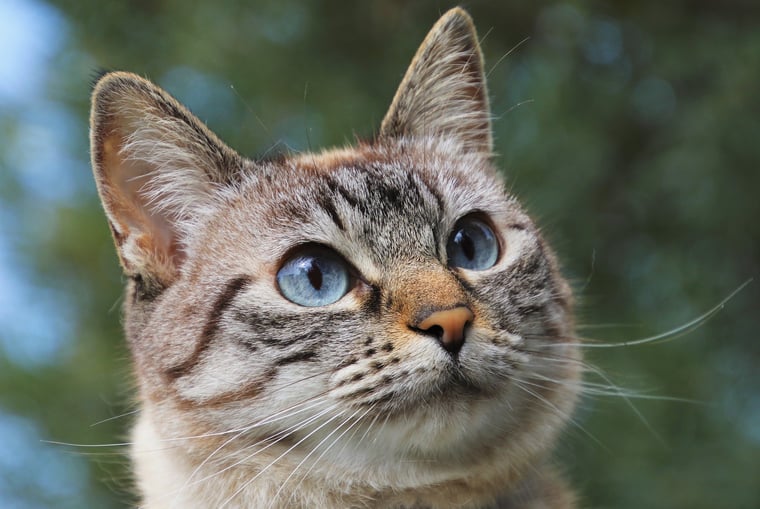Cats and Heartworm Disease

Did you know cats get heartworm disease? Many pet owners know how bad heartworm disease is for dogs while the disease in cats is less well known.
Dog owners commonly give their pets medications to prevent heartworm, while only about 5% of cats receive such care.
Heartworm is a parasite found in the bite of a mosquito. When a pet gets bitten by an infected mosquito, that pet will have adult heartworms in a few months. Even though the name of the disease is heartworm, the adult worms end up living in the blood vessels of the lung. The presence of these worms damages both the lung tissue and blood vessels of the lungs.
Signs of heartworm infection are coughing, breathing problems, decreased ability to exercise, right heart failure that causes fluid in the belly, or even death.
While dogs and other wild animals such as foxes, wolves, coyotes are the usual host, heartworms can also infect other animals including cats, ferrets, bears, and lions.
Although cats are less likely to be infected than dogs, the result is just as serious. Unlike dogs, who tend to have hundreds of worms, infected cats may have only 1-3 worms. Cat blood vessels are small, and cats develop a severe reaction to heartworms. So, even a single dying worm can cause serious illness and even death.
Even in the early stages of infection, because of cats’ severe reaction to the developing worms, the lungs become damaged causing breathing problems like asthma. Also, since the cat is not the normal host, the heartworms sometimes go to odd locations like the brain, eyes, or spinal cord. If that happens, cats can have seizures, blindness, or problems walking.
Finding heartworm disease in cats is not as easy as it is in dogs. There are two blood tests for heartworm in the cat. Both tests have flaws when used for cats and your vet will help to figure out if a cat is truly infected. Other useful tests in the cat to help diagnose heartworms are an echocardiogram (ultrasound of the heart) and chest X-rays.
Sadly, there is no good treatment for heartworms in cats. Since the most common signs are like asthma, some cats improve with steroids while more serious cases may need to be admitted to a vet hospital or urgent care center.
The good news is that heartworm disease is preventable in the cat, just as it is in the dog. There are many approved medications to prevent heartworm in cats. All are readily available and easy to administer. Because mosquitos are the source of heartworm infection, outdoor cats are more likely to become infected, but many studies show indoor cats are also at risk. Mosquitos can easily get into the house or porch where the cat may live or lounge. If your cat is not currently on heartworm preventative, please ask your veterinarian about starting one soon.
